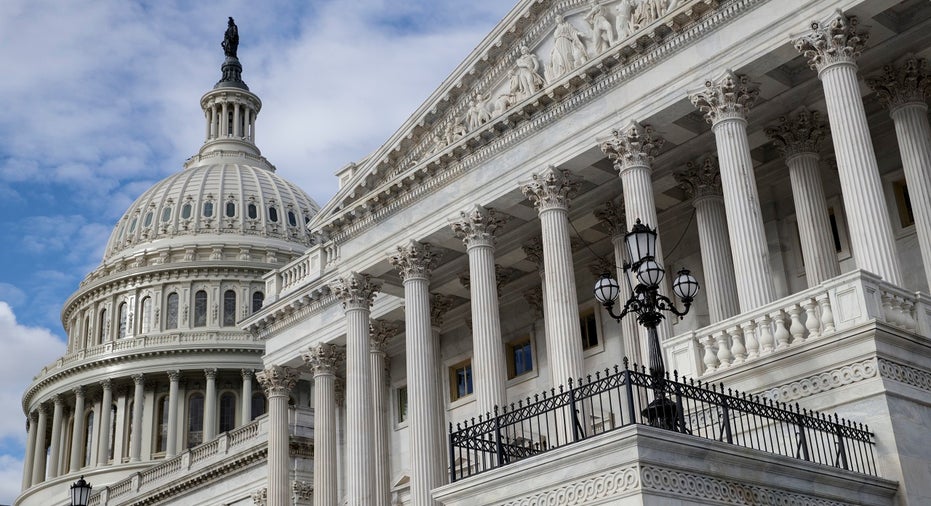Top senator sees both parties blamed if Congress can't stabilize insurance market

Both parties must give ground to craft a compromise bill shoring up the nation's individual insurance markets or they'll be blamed for hurting millions of consumers, the chairman of the Senate health committee said Wednesday.
Sen. Lamar Alexander, R-Tenn., spoke as his panel held an initial hearing in its effort to see if Democrats and Republicans can forge a modest bill aimed at curbing premium increases and preventing insurers from fleeing some marketplaces. The effort will show whether divided Republicans are willing to pivot from trying to obliterate the Obama health care law to helping it survive, and if both parties can overcome lingering raw feelings over that battle.
Alexander said he wants a bipartisan bill produced by the end of next week. By late September, insurers must decide whether they will sell policies in the government's Healthcare.gov online exchanges in 2018, and he and top panel Democrat Patty Murray of Washington state hope to quickly produce a bill that would ease companies' anxieties.
Failure to produce legislation will hurt millions of Americans buying individual insurance who'd face big premium boosts and less competition.
"The blame will be on every one of us, and deservedly so," Alexander said.
Alexander is offering to extend billions in federal subsidies to insurers who reduce out-of-pocket costs for lower-earning customers for a year. In exchange, he wants Democrats to make it easier for states to let insurance companies sell policies with lesser coverage requirements imposed by President Barack Obama's health care law.
Murray said that President Donald Trump is trying to "sabotage" Obama's statute by repeatedly threatening to halt the subsidies to insurers and slashing federal spending for outreach aimed at persuading people to buy policies.
"Threading this needle won't be easy," Murray said. "But I do believe an agreement that protects patients and families from higher costs and uncertainty, and maintains the guardrails in our current health care system, is possible."
Analysts expect 2018 premium increases to match or exceed the average 25 percent boosts on midlevel plans sold this year on the government's Healthcare.gov online marketplace. Insurers say additional upsurges are possible due to uncertainty over actions by the Trump administration.
In addition, nearly half the nation's roughly 3,000 counties are expected to have only one insurer offering coverage on government insurance exchanges next year. Republicans say that lack of competition shows a failing of Obama's law. Republicans also had asserted that a handful of mostly rural counties would have no insurers selling policies in 2018, but the latest federal figures project that will not happen.
Alexander envisions a bill that would finance government subsidies to insurers for 2018. The payments, which cost around $7 billion this year, compensate companies for lowering out-of-pockets costs for customers' deductibles and co-payments, which Obama's law requires. Almost 7 million lower-earning people benefit from the reductions.
The subsidies are also legally required, but they're the subject of a federal court case over whether Congress properly approved the payments. Trump has threatened to halt them, calling them bailouts for insurers. Insurance companies and nonpartisan budget analysts say blocking that money would prompt insurers to raise premiums even further, and lawmakers from both parties want the payments to be approved.
In return for the money, Alexander wants to make it easier for states to get waivers so insurers could provide less stringent coverage than Obama's law requires.
Murray has said she wants the cost-reduction payments to be extended for multiple years, not just one, and favors creating another federal fund states could tap to help insurers contain premiums. She's also warned she'll oppose weakening Obama's statute.
The states whose insurance commissioners were testifying range from Oklahoma, where every county is projected to have just one insurer selling individual policies on the marketplace next year, to Washington, where most counties are expected to have two insurers or more. Officials from Tennessee, Pennsylvania and Alaska will also appear.
Hardened partisan positions might be hard to overcome after the two parties fought bitterly all year over the GOP repeal drive. And Republicans are split: While Trump and conservatives want the GOP to revive a full-fledged drive to erase the law, Senate Majority Leader Mitch McConnell, R-Ky., has resisted doing so without the votes to prevail.
The chemistry between Trump and Senate Republicans remains uncertain after Trump spent August repeatedly assailing McConnell and GOP senators for letting the health bill crash. McConnell opened the Senate's return from summer recess Tuesday listing a busy September agenda that excluded any mention of health care.



















